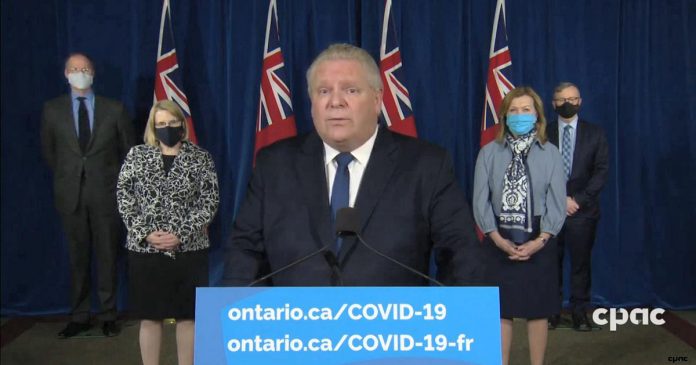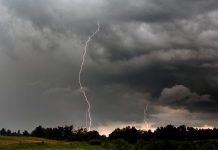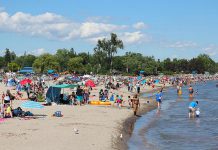
In response to the COVID-19 situation in Ontario, Premier Doug Ford has declared a state of emergency for the province, effective immediately and remaining in place for at least 28 days.
Ford made the announcement at a media conference at Queen’s Park on Tuesday afternoon (January 12).
In addition, Ford announced a “stay-at-home order” effective at 12:01 a.m. on Thursday, January 14th. Under this order, all Ontarians must stay at home and only go out for essential purposes, such as going to the grocery store or pharmacy, accessing health care services, for exercise, or for essential work.
“More than ever, we need — I need — you to do your part,” Ford said. “Stay home, save lives, protect our health care system. The system is on the brink of collapse. It’s on the brink of being overwhelmed. We’re at levels we’ve never seen before.”
Schools in Windsor-Essex, Peel, Toronto, York, and Hamilton will remain closed for in-person learning until February 10. By January 20, Ontario’s medical officer of health will advise the Ministry of Education on schools in the remaining public health units that will be permitted to resume in-person instruction. Schools in public health units in northern Ontario will continue to remain open.
This is the second provincial emergency declared under section 7.0.1 (1) of the Emergency Management and Civil Protection Act (EMPCA) since the pandemic began. The Ontario government declared the latest state of emergency in response to updated COVID-19 modelling projections, released to the public on Tuesday morning.
In addition to the stay-at-home order, the following additional public health restrictions are in effect:
- Outdoor organized public gatherings and social gatherings are further restricted to a limit of five people, with limited exceptions.
- Individuals are required to wear a mask or face covering in the indoor areas of businesses or organizations that are open. Wearing a mask or face covering is now recommended outdoors when you can’t physically distance more than two metres.
- All non-essential retail stores, including hardware stores, alcohol retailers, and those offering curbside pickup or delivery, must open no earlier than 7 a.m. and close no later than 8 p.m. The restricted hours of operation do not apply to stores that primarily sell food, pharmacies, gas stations, convenience stores, and restaurants for takeout or delivery.
- Non-essential construction is further restricted, including below-grade construction, exempting survey.
These measures will come into effect between Tuesday, January 12th and Thursday, January 14th.
The province will provide authority to all enforcement and provincial offences officers, including the Ontario Provincial Police, local police forces, bylaw officers, and provincial workplace inspectors to issue tickets to individuals who do not comply with the stay-at-home-order, or those not wearing a mask or face covering indoors as well as retail operators and companies who do not enforce.
In response to a reporter’s question about whether the stay-at-home order was enforceable, Ford emphasized the order is not the same as a curfew.
“A curfew is you aren’t leaving your house, simple as that,” Ford said. “After 8 o’clock — you see what’s happening in Quebec — the streets are empty. I’ve never been in favour of a curfew. That’s a hard, hard lockdown. Cars aren’t driving around, nothing at all.”
“One of the big changes with the stay-at-home order is actually allowing and empowering provincial offences officers, most commonly by-law enforcement officers, to also issue tickets and disperse crowds of larger than five if they aren’t in the same household,” added Sylvia Jones, Ontario’s solicitor general.
Those who decide not to abide by orders will be subject to set fines and/or prosecution under both the Reopening Ontario Act and EMCPA. All enforcement personnel will also have the authority to temporarily close a premise and disperse individuals who are in contravention of an order and will be able to disperse people who are gathering, regardless whether a premise has been closed or remains open (such as a park or house).
For more details on the state of emergency, visit news.ontario.ca/en/release/59922/ontario-declares-second-provincial-emergency-to-address-covid-19-crisis-and-save-lives.
This story has been updated with additional details about the state of emergency.


























